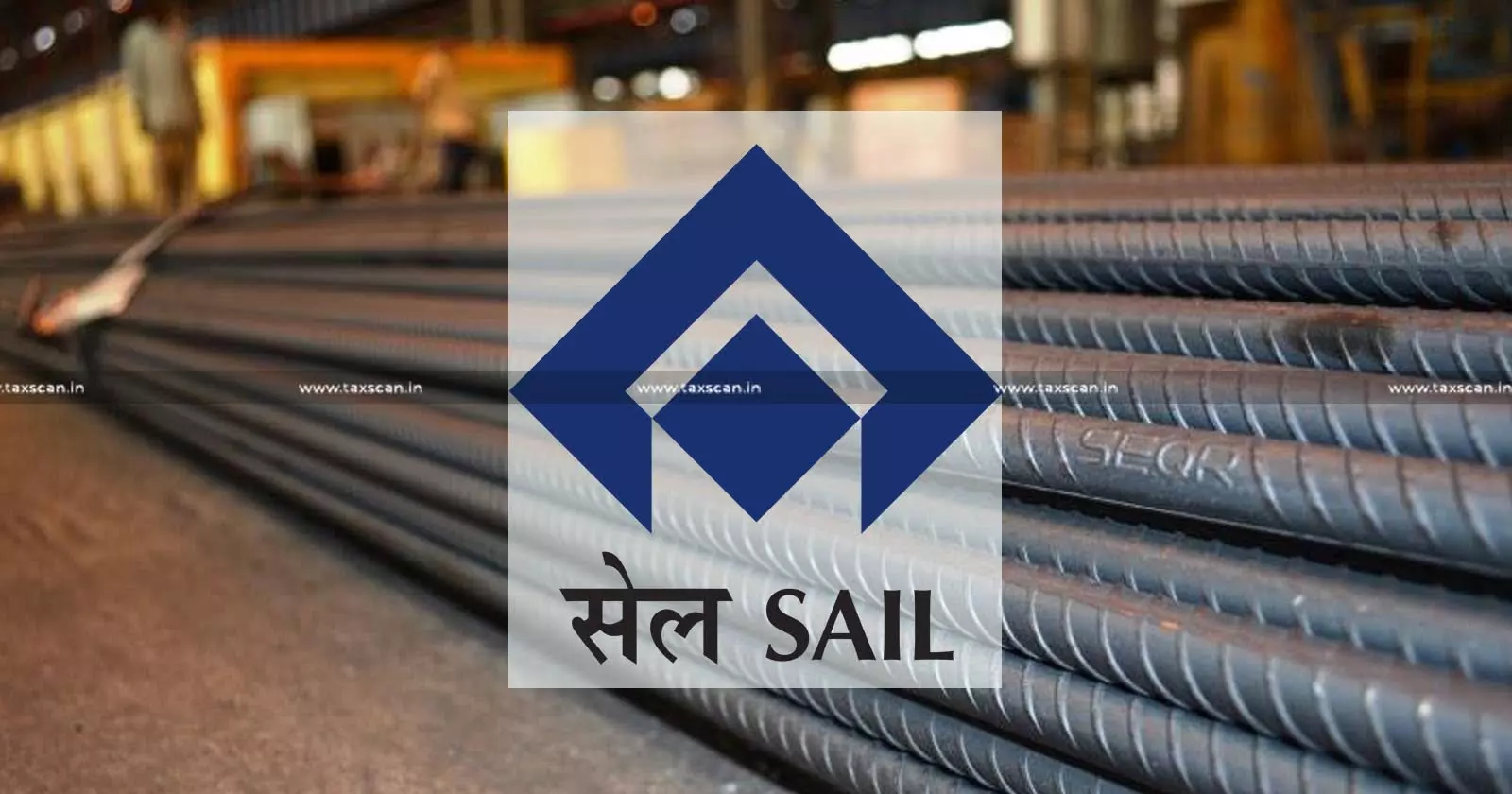Relief for SAIL: CESTAT Grants Exemption on Captive Use of Steel Items for Internal Roads and Maintenance Activities
The tribunal held that these items, used for repairing plant and machinery as well as for constructing roads and fencing critical to plant operations, were integral to the manufacturing process.

The Kolkata Bench of Customs,Excise and Service Tax Appellate Tribunal ( CESTAT ) granted relief to Steel Authority of India Limited (SAIL) by allowing exemption on captive use of steel items such as Angles, Joists, Channels, TMT Bars, and Rods used within its Durgapur plant for internal roads and maintenance activities.
Steel Authority of India Limited,appellant-assessee, operated an integrated steel plant in Durgapur, West Bengal, and was engaged in manufacturing and selling iron, steel, and related products under various chapters of the Central Excise Tariff.
Between April 2003 and December 2010, it manufactured and used items like Angles, Joists, Channels, TMT Bars, and Rods within the plant for repair and maintenance and for indirect use in producing dutiable final goods. Based on this, it claimed exemption from duty under Notification No. 67/95-CE.
The department denied the exemption, stating that the goods were used by various departments for activities not directly related to manufacturing or machinery maintenance. It held that the use did not meet the conditions of the exemption.
As a result, show-cause notices were issued, and a common order was passed denying the benefit and confirming the duty demand. The assessee challenged this order before the tribunal.
 Also Read:Bus Services for Transporting Employees and School Children Qualify for Service Tax Exemption Under Entry 23(b) of Notification: CESTAT [Read Order]
Also Read:Bus Services for Transporting Employees and School Children Qualify for Service Tax Exemption Under Entry 23(b) of Notification: CESTAT [Read Order]
The two member bench comprising Ashok Jindal (Judicial Member) and K.Anpazhakan ( Technical Member) found that the goods on which duty was demanded had been used for the repair and maintenance of existing plant and machinery, which were ultimately involved in the manufacture of final products. It held that such use qualified for the benefit of captive consumption under Notification No. 67/95 CE.
It further noted that the goods used by the Plant Civil Engineering Department for constructing roads and fencing within the plant, such as at Power Street, By Product Road, and Coal Bed, were part of the manufacturing infrastructure. These roads enabled movement of inputs and materials necessary for daily production and were considered integral to the manufacturing process.
The appellate tribunal observed that damaged roads could disrupt production, especially those running alongside railway tracks, and thus had a direct bearing on manufacturing activity.
Relying on the Supreme Court’s decision in Jayaswal Neco Ltd., the bench stated that infrastructure like internal railway tracks, roads, and related civil works, when used within the plant to support material movement, were integral to the manufacturing process. Therefore, such use met the test laid down by the Apex Court regarding goods used directly or indirectly in or in relation to manufacture.
Accordingly, the appellate tribunal held that the assessee was entitled to the benefit of Notification Nos. 67/95 CE and 65/95 CE. As a result, it set aside the duty demand, along with interest and penalties, and allowed the appeal with consequential relief.
Support our journalism by subscribing to Taxscan premium. Follow us on Telegram for quick updates


